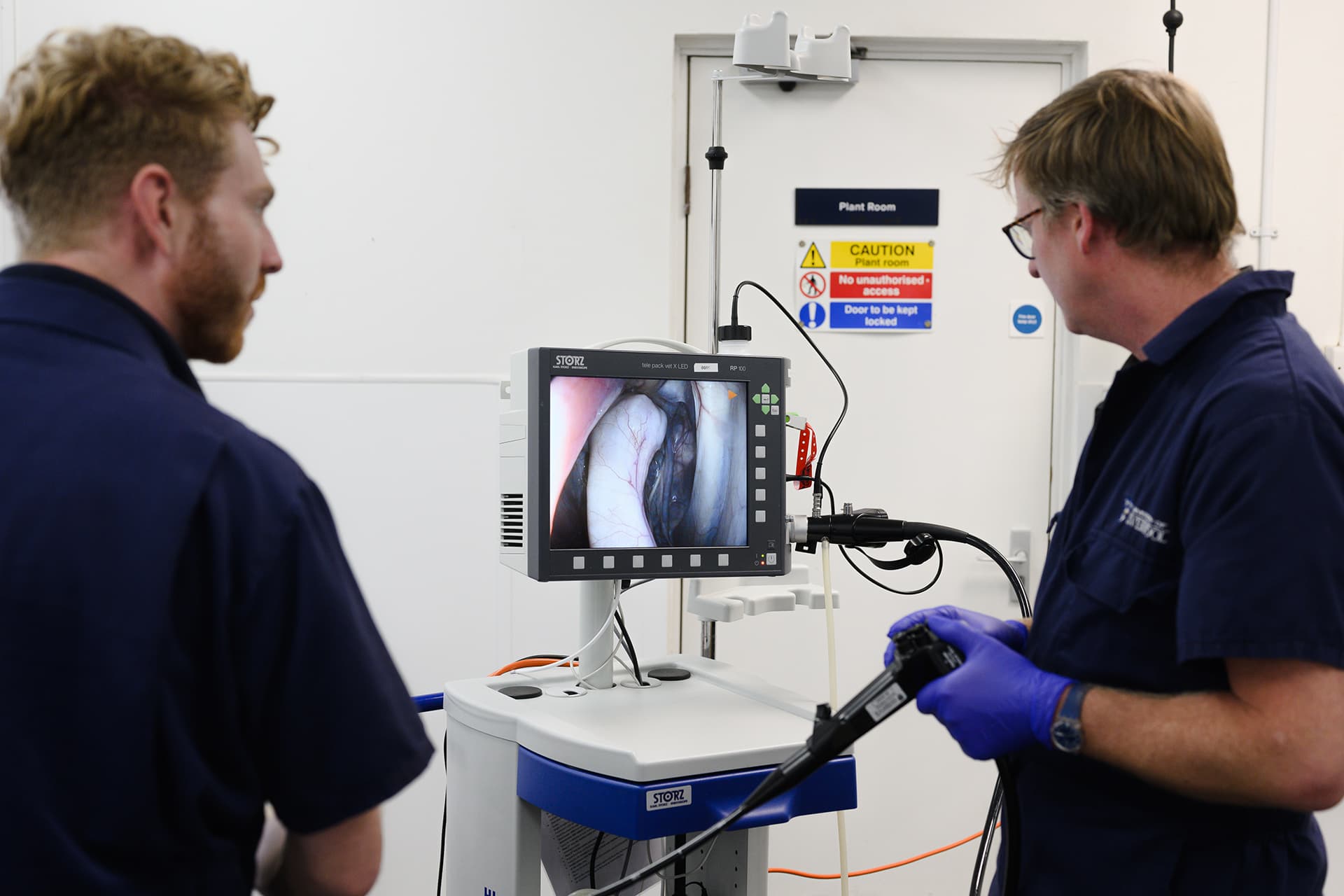Cardiorespiratory
Cardiorespiratory issues (conditions of the heart and lungs) are common problems in horses and can be caused by several different conditions. Horses can present in several different ways.

Common presenting signs include:
- Poor performance - a sudden decline in performance, or when a horse or pony is unable to cope with the expected level of exercise
- Struggling to breathe or taking more effort to breathe
- Unusual respiratory noise at rest or only when exercising
- Discharge from the nostrils – mucus, pus or blood.
Depending on the history of the horse or pony and the results of the initial assessment, further assessment of the heart or airways may be needed. Our team of medicine, surgery and imaging specialists can offer a comprehensive, multidisciplinary approach to these cases.
This includes a full range of diagnostic evaluations and treatments which will be discussed with owners and referring vets on an individual case basis. Depending on the cause of the problem, this may involve medical treatments and management changes or may involve surgery.
Respiratory investigations and treatment
Our team can provide a full range of assessments of the horse's upper and lower airways, using a variety of different imaging techniques, from portable equipment that can be used on your premises through to state-of-the-art advanced imaging techniques at the hospital.
In many cases, endoscopy is the first test performed, allowing us to exclude or confirm different conditions. This involves the use of a small, flexible camera that is passed via the nostrils into a horse's airways to assess the upper and lower parts of the respiratory tract. Endoscopy is usually performed at rest but in some cases, we may need to assess the airways during exercise using our dynamic endoscope. This enables us to evaluate horses at various levels of exercise.
Other types of imaging are indicated in certain conditions. This may include computed tomography (CT), which provides high-quality three-dimensional images of the horse's head, including the sinuses, teeth and brain. Other imaging techniques that may be needed include sinoscopy, where a camera is placed directly into the horses sinuses, or ultrasonography.
Our specialists can quickly and accurately diagnose a range of conditions. For conditions like equine asthma, airway samples are analysed by our laboratory, allowing us to develop a customised treatment plan. Other conditions may require surgery on an elective or emergency basis.
Cardiac investigations and treatment
Cardiac assessments may involve echocardiography to evaluate the heart's structure, along with electrocardiograms (ECGs) to investigate arrhythmias.
If a cardiac murmur is detected during a pre-purchase examination or routine check-up, our specialists can help determine its significance. While murmurs often cause concern, many are not indicative of serious heart disease. Some conditions are more serious, so it's important to properly assess the heart. We can also perform repeat monitoring of these cases on an out-patient basis.
Arrhythmias may also be caused by a number of different conditions. We can perform a full range of ECG tests including 24-hour monitoring in conjunction with CCTV monitoring within our intensive care unit or ECG testing at exercise. Atrial fibrillation, a common cause of abnormal heart rhythms in horses, can be treated using medical or electrical cardioversion, depending on the severity. We can offer a full range of options for the management of atrial fibrillation at the hospital depending on the individual horse and owner's wishes.